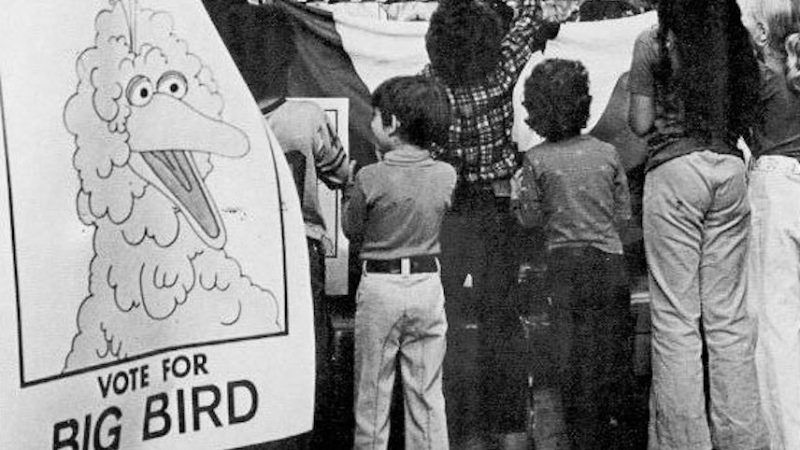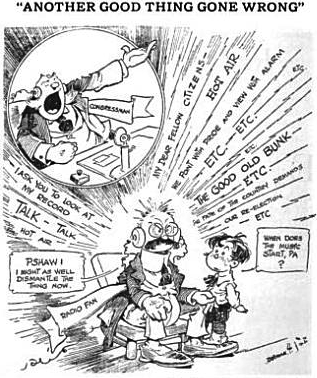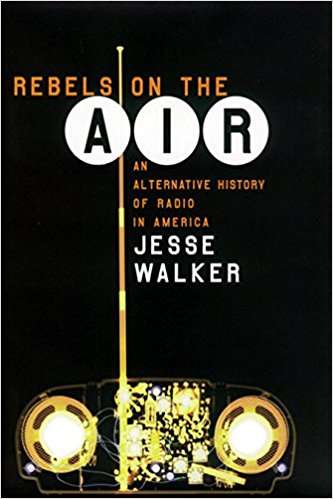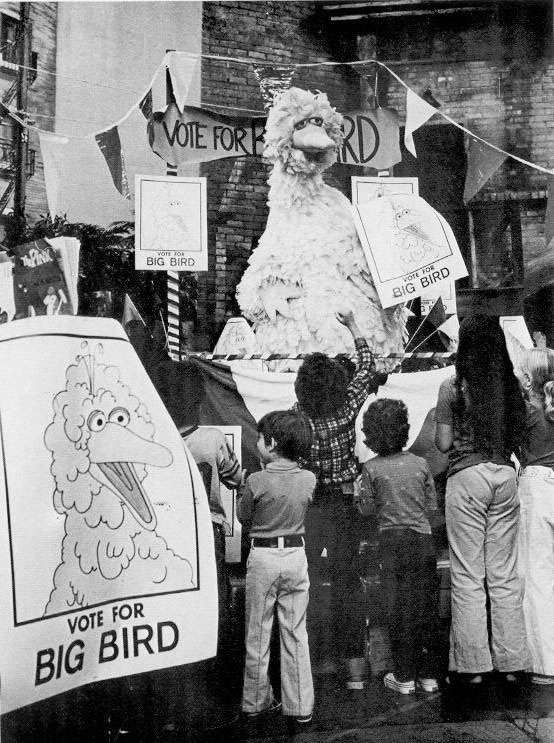The Corporation for Public Broadcasting Turns 50
The controls concealed in the subsidies

Fifty years ago this week, Lyndon Johnson signed the Public Broadcasting Act of 1967, the law that created the Corporation for Public Broadcasting. I've been writing about the CPB for two of its five decades; here's a sampling of those stories:

• "With Friends Like These" (July 24, 1997): A paper I wrote for Cato on the ways the CPB has made independent, listener-funded, volunteer-driven community radio stations blander and less accountable to their communities. This is out of date in all sorts of ways, but the history I discuss is still relevant. And there may be some broader lessons in my explanation of a cycle built into the CPB's subsidies:
The limited amount of money the state has to offer requires it to discriminate on some rational basis—if the CPB dispensed funds to every small community station in America, it would have to divide its budget so finely that no station would receive enough money to justify the corporation's existence. So the CPB strives to direct its money to the stations with the most powerful signals and the largest measured audiences and shies away from financing more than one outlet in a single market. But the CPB requirements encourage stations to grow and adopt "professional" values, putting further pressure on the CPB's budget and forcing it to further restrict the flow of money, refueling the cycle yet again. If the CPB's budget is expanding anyway—as it did during the Carter years, for example—the cycle might be slowed and the problem concealed. If the budget is contracting, as it is today, the problem only gets worse. Under any circumstances, the professionalization and expansion cycle is built into the federal subsidies; it cannot be eliminated by minor reforms or by putting a friendlier group of bureaucrats in charge.
• "It Didn't Begin with Sesame Street" (October 1997): I review Ralph Engelman's book Public Radio and Television in America: A Political History. Among other things, the article discusses the birth of the Corporation for Public Broadcasting; it also looks at the handful of public TV stations that existed before the CPB, when some social engineers at the Ford Foundation argued that "educational television" (as it was then known) could be a force for social uplift, "an instrument for the development of community leaders," even "a form of psychotherapy."
• "Independent Airwaves" (March 2001): I interview a man with a plan to "restructure public broadcasting as an independent public trust." His group was split between people who wanted a completely independent institution and people who just wanted to rearrange how the government gives broadcasters money.

• Rebels on the Air: An Alternative History of Radio in America (2001): The CPB isn't the only topic I cover in this book, but it's a significant part of it.
• "The Way to Sesame Street" (November 2009): For Sesame Street's 40th birthday, I looked at the complicated social legacy of a show that "reflected both an antipathy to commercialism and a fascination with commercials, which served not just as a source for its parodies but as a model for its programming." We had to make some cuts to the piece to fit it into a two-page spread; I posted some of the outtakes, including the tale of the time an executive mistook Jim Henson for a member of the Weather Underground, on my personal blog.
• "Radio Theater" (February 2011): Republicans have repeatedly threatened to defund the CPB. Not only do these standoffs always end with the institution still standing, but in the long run its budget keeps growing. This article takes a tour through the history of those fights, arguing that the real
point of these exercises isn't to cut the broadcasters loose. It's to use the threat of cutting them loose to whip them into shape.
The system was still standing after Nixon made his threats, but all save one of the programs he found objectionable went off the air. After the Gingrich-era battle ended, the Republican pundits Fred Barnes, Peggy Noonan, and Ben Wattenberg all landed gigs at PBS—and following an initial cut, the CPB's budget crept back upward. The funding fight under George W. Bush took place against the backdrop of a conservative CPB chief crusading for a more right-friendly PBS and NPR.

• "If You Love Big Bird, Set Him Free" (April 14, 2011): I did a point/counterpoint with an NPR executive about CPB funding. (He wanted to keep the federal dollars flowing; I liked the idea of a genuinely independent trust.) Our argument was originally published at Bloomberg, but I can't find it on their site anymore. You can still read my half of the debate, though, because we posted it at Reason a couple of weeks later.
• "Public TV Execs Fall In Alabama" (June 19, 2012): This little blog post isn't actually about the CPB. It's about America's oldest public TV network, established in Alabama in the 1950s. But it's such a perfect example of how government money can lead to government control that I have to include it here anyway. The short version: When you're funded by the likes of George Wallace, you tend to pull your punches when covering civil rights.
• "Woody Allen's Lost Nixon Movie" (August 8, 2014): Another example of government money having a chilling effect. In 1971, when Woody Allen made a mockumentary spoofing Henry Kissinger, PBS refused to distribute it.
• "Congress Reaches Spending Deal; 'Skinny Budget' Goes Out the Window" (May 1, 2017): I won't try your patience by linking to every CPB budget fight since that "Radio Theater" article linked above came out. But I'm including this one, just to remind you that it takes more than a blustery president and some budget-cutting fanfic to change a pattern as entrenched as this.


Show Comments (37)